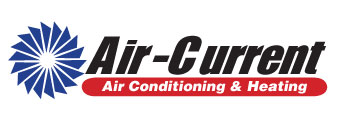
Buying your first home is exciting. You’re likely juggling a dozen things or more about making the right choice. We believe that gaining insight into your future HVAC system is crucial. The property’s HVAC system represents a substantial investment and source of potential long-term costs, which is why due diligence should be a top priority for first-time homebuyers.
In this guide, we’ll outline seven tips for learning everything you can about a home’s heating and cooling system. And if you want a more in-depth opinion from the pros, consider calling Air Current AC & Heat. Our experienced team can weigh in on your options with industry insights that are second to none.
1. What Type of HVAC System Is It?
Start by clarifying what kind of HVAC system the home features. Furnaces generally last longer compared to air conditioners, and some of the latest types of HVAC products like heat pumps feature average life spans that are even longer. Getting the details on the make and specific model ensures you have a clear understanding of how much maintenance it will require.
2. How Long Ago Was the System Installed?
It also helps to learn how old the HVAC system is when you're looking at a new home. In general, HVAC systems tend to run for about 10-12 years. Knowing when it was installed helps you prepare for any needed servicing or considerations if it might eventually stop working. Older systems are at a higher risk of problems, so planning ahead of time for a replacement unit might be needed faster than expected.
3. Is the Warranty Active?
Be sure to check the HVAC system is still under warranty. If it is, that's great news because it can lighten the load for maintenance costs. HVAC warranties typically include parts and labor, but specifics will vary. Review any terms that seem confusing to make sure you fully understand your coverage and any possible out-of-pocket costs.
4. When Was the Last Time It Received Maintenance?
Take a close look at the maintenance history of the HVAC system, if this kind of history is available. This kind of information can reveal if the repair needs are high or how often a tune-up was scheduled. Ask about records for key tasks such as changing the air filter, which means it enjoyed more regularly scheduled tune-ups.
5. What Are the Energy Efficiency Ratings?
Finding a home that features an HVAC system with strong energy efficiency can lead to lower utility bills and less of an impact on the environment. Locate the seasonal energy efficiency ratio (SEER) ratings for air conditioning as well as the annual fuel utilization efficiency (AFUE) for furnaces. The higher the SEER rating, the more efficient the cooling over the whole season, while higher AFUE ratings illustrate that the fuel is efficiently converted into useable heat.
6. Have You Noticed Signs of Problems After Your Own Inspection?
Even without experience in HVAC systems, it's still a good idea to examine the HVAC system on your own. Watch closely for any concerning items that haven't been mentioned by the seller. This can mean bizarre noises, unequal airflow and attempts at concealing any serious damage.
7. Have You Asked Your Local HVAC Professional?
If you're still hesitant to make an offer because of the condition of the HVAC system, it's wise to get input from experienced HVAC technicians. They are skilled at identifying things you might not, such as refrigerant leaks, wiring issues or inefficient ductwork.
A Call with Air Current AC & Heat Simplifies Your Home-Buying Journey
Finding your first home is meant to be a joyful event, and Air Current AC & Heat wants to ensure it stays that way. Connect with us at 713-322-4318. We can discuss how our HVAC services give you peace of mind, giving you what you need to dive into home-ownership with confidence.
